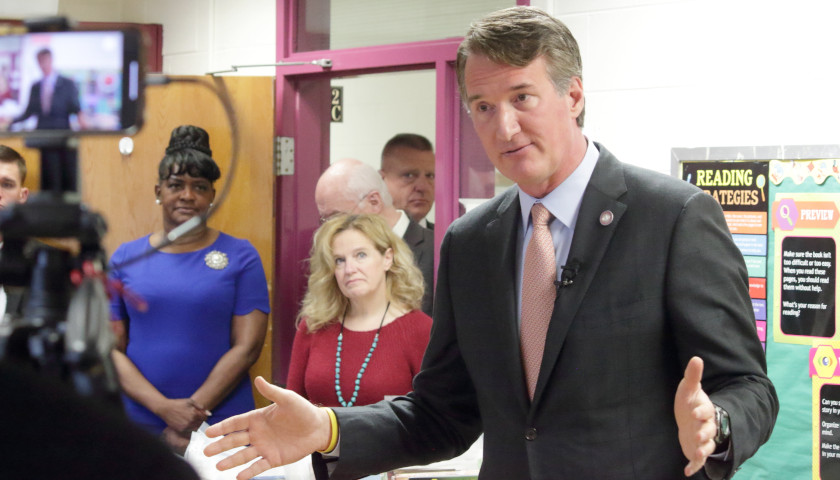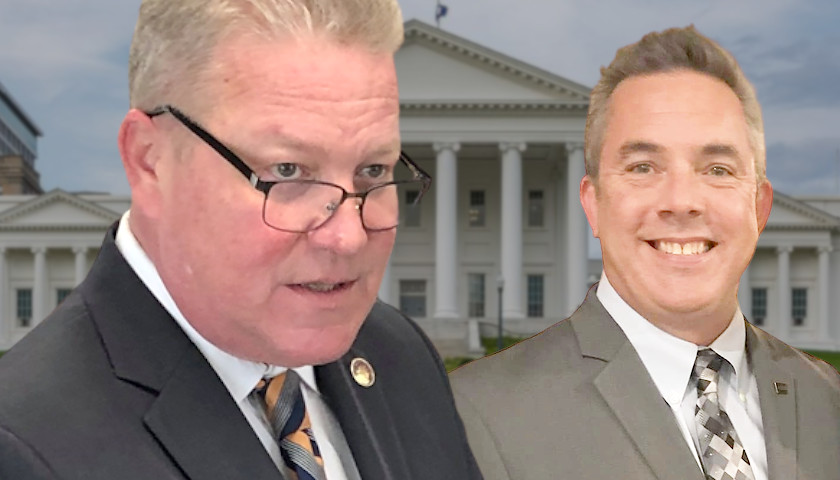State Senator Bill Stanley (R-Franklin) is the newest addition to the Virginia Redistricting Commission. His predecessor State Senator Stephen Newman (R-Bedford) resigned after the commission’s busy schedule for the next two months was announced.
“I know he put a lot of effort, time, and passion into this commission. He resigned shortly after we released our wonderful meetings. So I don’t know if [Co-Chair Greta Harris (D)] and I scared him away or what,” Co-Chair Mackenzie Babichenko (R) joked.
“I am not afraid. I’m looking forward to this. I was asked to replace Steve. Those are big shoes to fill,” Stanley said. “I’m exceptionally excited because of this citizen-driven commission.”
Newman’s legacy on the commission is as an advocate for making sure the final product can pass the General Assembly as a whole, which often placed him in conflict with citizen members who wanted room for reform that might frustrate incumbents. The results of that advocacy and the extent to which incumbents are protected continue to be at the center of the commission’s discussion.
Thursday’s meeting was at times contentious as members reviewed new drafts of Northern Virginia maps proposed by the two teams of partisan map-drawers.
Last week, Democratic legislators expressed surprised when even the maps proposed by the Democratic map team had multiple incumbents in the same district. In that meeting, the Democratic team said they had not considered incumbent addresses. But they did use incumbent addresses in new drafts presented Thursday, triggering outcry and debate on the commission. Senator George Barker (D-Fairfax) argued that an earlier vote saying the commission “may” consider incumbent addresses allowed the map drawers to use the addresses. Others argued that just meant that the commission could choose to use the data, but that the map drawers were only supposed to act on explicit instruction from the commission.
Senator Ryan McDougle (R-Hanover) spoke against using incumbent addresses, and was concerned that the Democratic team had gotten the incumbent addresses from a third-party source.
“I am personally entirely agnostic on the question of the incumbent data,” Democratic map drawer Ken Strasma said, and asked for formal guidance from the commission. He said they decided to use the data because the criteria said it may be considered.
“There was some shock expressed both in the press and the discussion at last week’s meeting when we said that we did not consider incumbency data,” he explained.
Babichenko said, “Us as the commission members may consider it. So as the map drawer, I think at this point you are not considering it moving forward, but we may consider it once we see your maps.”
Republican map drawer John Morgan did not use incumbent data, and relied in part on his experience in previous redistricting cycles to identify which regions should be in the same districts. That led to a discussion of whether or not map drawers should also be considering public comment. Commissioners said that they would consider public comments and pass relevant instruction to the map drawers.
Barker also proposed his own maps for the area, after previous drafts proposed by the Democratic team included his home precinct in Senator Chap Petersen’s (D-Fairfax) district. Barker argued that he would lose in a primary, since the precincts in the proposed district were primarily from Petersen’s current district, giving Petersen the incumbent’s advantage.
“What I did was basically move six precincts in Fairfax County area. Two each in three different places, which would have the result in there being no two senators (who have been planning to run for reelection in 2023, not the people who have already indicated they’re going to retire at that point) and there will be no two senators in any single district,” Barker said.
Barker’s changes affect districts six, seven, and three.
“I’m not sure why we’re hearing this. This seems to me like it’s a statement of self interest, not about good government or good districts,” Citizen Member Sean Kumar (D) said. “I’m kind of in shock that we’re hearing individual members — because we agreed to the rules, we said these were drafts, we’re going to smooth things out.”
“I think it’s bad precedent for us to have individual members submitting maps, especially in their own district, which seems to smack in the entire face of what this [redistricting] amendment was talking to.”
Babichenko explained that Barker was offering his maps as a form of comment, which all the other commissioners are also welcome to do.
“Senator Barker is still also a citizen as well as a member,” she said.
The commission will meet again on Monday to consider drafts of maps from the Tidewater and Eastern Shore.
– – –
Eric Burk is a reporter at The Virginia Star and The Star News Network. Email tips to [email protected].
Photo “Sen. Bill Stanley” by Bill Stanley. Background Photo “Virginia State Capitol” by David J Bromley CC BY-SA 4.0.





